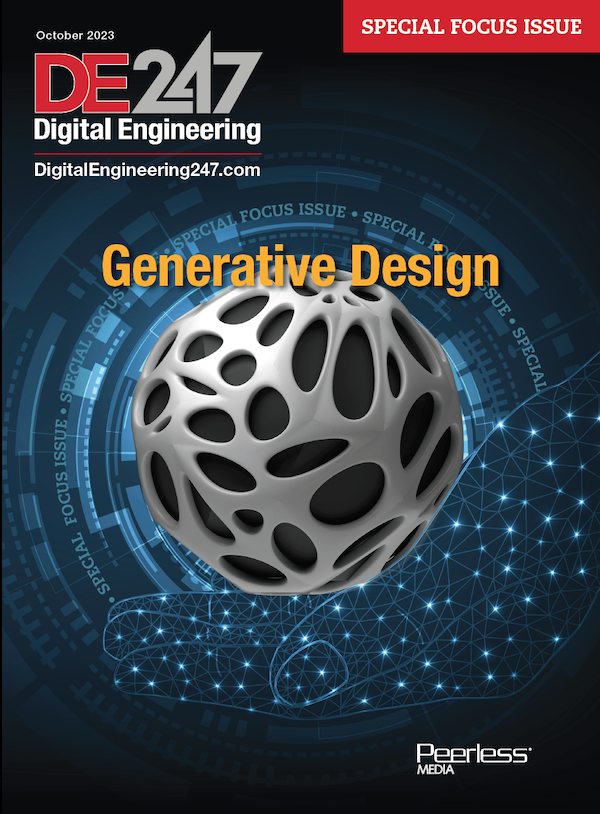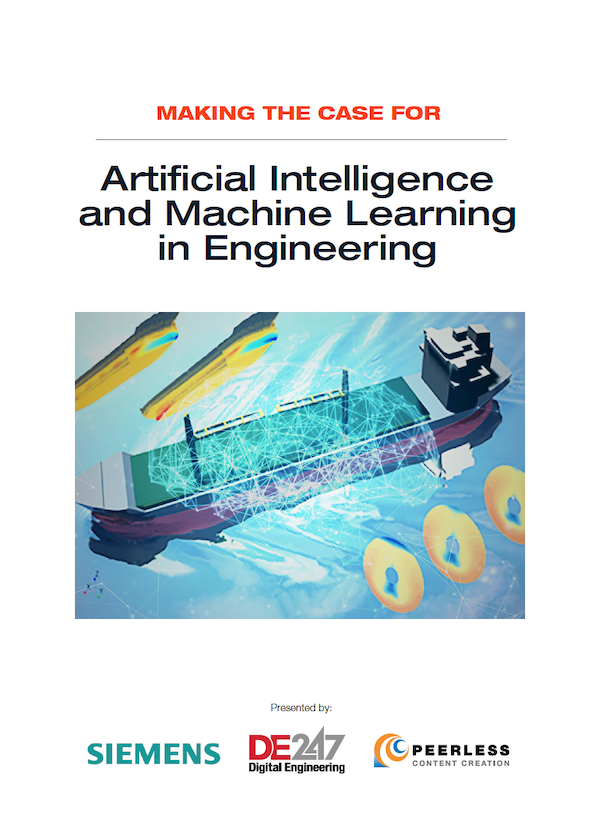Fast Radius Puts Curtiss Motorcycles on a Manufacturing Fast Track
A hybrid manufacturing approach, including AM for complex parts, helped the firm meet an accelerated design and build cycle for its new Zeus 8 electric motorcycle.

The Zeus 8 electric motorcycle features an organic-shaped chrome frame and eight banks of visible cylinders. Image courtesy of Curtiss Motorcycles.
Latest News
September 30, 2019
One of the first things you notice on Curtiss Motorcycles’ new Zeus 8 electric motorcycle design is a sweeping, organic-shaped chrome frame and eight banks of visible cylinders. While the uniqueness of the design is a core differentiator, Curtiss found itself struggling to come up with a strategy for producing the physical rendition of the bike design in a reasonable timeframe.
With an event to showcase its new bike fast approaching, the development team ran into challenges sourcing key parts for the prototype, especially the intricate chromoloy frame. Uninterested in building out expensive tooling and lacking the time to wait for its CNC suppliers’ quoted long-lead times, Curtiss turned to Fast Radius, a provider of hybrid manufacturing services, to get the unique bike into production quickly so it could make its planned launch date.
“We had three weeks to make it to the show—there was no chance a traditional approach to manufacturing would make that possible,” says Matt Chambers, CEO of Curtiss Motorcycles.
Working with Fast Radius, the partners came up with a hybrid manufacturing approach that leveraged CNC milling, hot tube bending and additive manufacturing. Instead of trying to force a single manufacturing process for Zeus, the team leveraged the strengths of the different methods when and where it made sense. For example, CNC technology was used for the bulk of the Zeus parts, including the swing arms, battery parts, front control arms, and neck. Chromoly hot tube bending came into play for the top end of the bike to avoid any kinks or warping in the bends. Industrial-grade additive manufacturing was the best solution for some of the more complex components that couldn’t be made with alternative methods and that allowed for the fast turnaround.
“Curtiss wanted a partner that would help them scale quickly without them having to build out their own factory and operations teams,” notes Brian Simms, Fast Radius’ vice president, who said the company essentially served as Curtiss Motorcycle’s factory and operations team. “Our lean manufacturing model and project management expertise enabled the parts to be produced in only 12 days—a full two days faster than any other supplier could offer.” In the case of the Zeus 8, Fast Radius produced 60 parts and components that maintained better than 95% first-pass yield, which helped reduce Curtiss Motorcycles’ production costs as there was little to no need for expensive part revisions.

Fast Radius helped steer a hybrid manufacturing approach for the Zeus 8 motorcycle, including 3D printing for complex parts that required customization. Image courtesy of Fast Radius.
In addition to the hybrid manufacturing services, Fast Radius also provided application engineering support, including optimizing designs for the different manufacturing technologies. For example, the team determined that AM was the best process for producing the seats and grips because it enables customization for each rider, which was a critical design goal for the team. “The seat can be made based on a customer’s comfort level, size, and weight—and both the seat and grips can be personalized/inscribed with the rider’s name or with anything else that’s important to them,” Simms adds.
In addition, Fast Radius’ expertise in lattice techniques aided in design for customizability. The lattice design allows for different durometers in the same part, allowing for a high level of customization. The team used Carbon's proprietary DLS (digital light synthesis technology), an industrial-grade 3D printing process, for the lattice design of both the seat and grips for the Zeus.“The lattice allows us to control the durometer by increasing or reducing the spacing and post, enabling the seat to be customized rather than one-size-fits-all,” he says.
Watch this video to hear Fast Radius talk more in-depth about its hybrid manufacturing approach.
More Carbon Coverage
Subscribe to our FREE magazine, FREE email newsletters or both!
Latest News
About the Author
Beth Stackpole is a contributing editor to Digital Engineering. Send e-mail about this article to [email protected].
Follow DE





